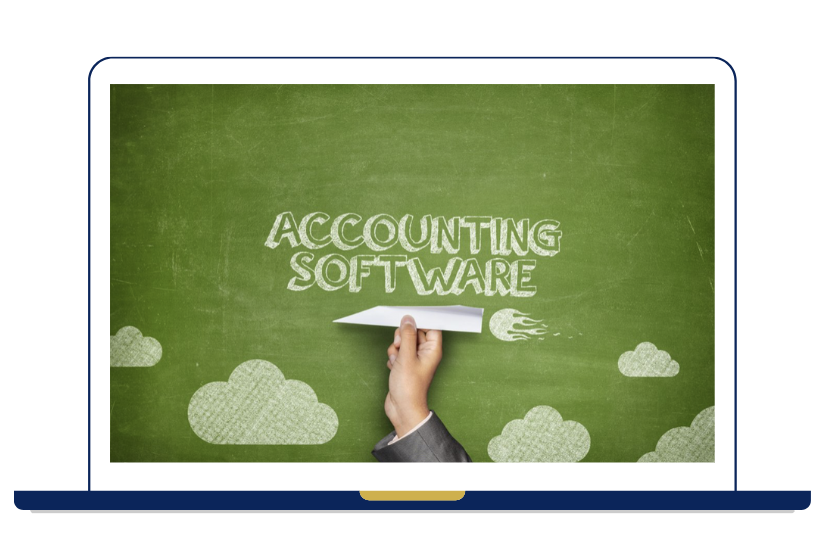What must an entrepreneur do after creating a successful Business Plan?
Discover the essential next steps for entrepreneurs after crafting a solid business plan.

After spending hours creating a comprehensive business plan, entrepreneurs may feel a sense of relief and accomplishment. However, the work does not end there. In fact, creating a business plan is just the first step toward success.
Entrepreneurs must act on their plans to turn their vision into reality and advance their business. You need a strong pitch to attract investors and show how their investment will make money.
Securing Financing for Your Business Plan
One of the crucial steps an entrepreneur must take after creating a business plan is securing financing. Without adequate funding, even the best business ideas can struggle to get off the ground. Entrepreneurs should explore various funding options, such as bank loans, angel investors, venture capitalists, or crowdfunding platforms. Prepare a strong pitch to attract investors and show how their investment yields returns.
When it comes to securing financing, entrepreneurs should also consider the different stages of funding. Startups go through rounds of financing, from seed to series A, B, and C, each serving different purposes.
Furthermore, entrepreneurs should carefully assess their financial needs to determine the amount of funding required to achieve their business objectives. This includes considering not only the startup costs but also ongoing expenses such as equipment, inventory, and marketing campaigns. Through financial analysis, entrepreneurs can decide the funding type and amount wisely.
In addition to traditional funding options, entrepreneurs can also explore alternative financing methods. For example, some entrepreneurs may choose to bootstrap their business, using personal savings or credit cards to fund their startup. Others may seek out grants or government programs designed to support small businesses in specific industries or regions.
Securing financing for a business plan can be a complex and challenging process. It requires careful planning, research, and the ability to effectively communicate the value proposition of the business. Entrepreneurs should be prepared to face rejection and setbacks along the way but remain persistent in their pursuit of funding.
Ultimately, securing financing is not just about obtaining the necessary funds; it is also about building relationships with investors or lenders who can provide valuable guidance and support. See funding as a chance to connect with vision-aligned partners for long-term success.
How to Market and Promote Your Business Plan
Marketing and promotion are vital components of any successful business. After creating a business plan, entrepreneurs must develop a comprehensive marketing strategy to reach their target audience effectively. This includes identifying the most appropriate marketing channels, such as social media, search engine optimization, content marketing, and traditional advertising.
Entrepreneurs should create a strong brand identity that resonates with their target market. This involves crafting a unique value proposition, designing a visually appealing logo, and establishing consistent branding across all communication channels.
By investing in market research, entrepreneurs can gain insights into their target customers’ preferences, needs, and behaviors. This information allows them to tailor their marketing messages and tactics to connect with their audience on a deeper level.
One important aspect of marketing and promoting a business plan is understanding the power of social media. Platforms like Facebook, Instagram, Twitter, and LinkedIn offer businesses a chance to connect personally with their target audience. Entrepreneurs must research active social media platforms among their target audience and create effective engagement strategies accordingly.
Search engine optimization (SEO) is another crucial element of marketing and promoting a business plan. By optimizing their website and content for search engines, entrepreneurs can increase their visibility and attract organic traffic. This involves conducting keyword research, optimizing meta tags and descriptions, creating high-quality content, and building backlinks from reputable sources.
Content marketing is a powerful tool for entrepreneurs looking to market and promote their business plan. Create valuable content like blogs, articles, videos, and infographics to become industry experts and gain a loyal following. Content marketing also helps with search engine optimization, as search engines prioritize websites with high-quality and relevant content.
While digital marketing strategies are essential in today’s digital age, entrepreneurs should not overlook the effectiveness of traditional advertising methods. Traditional channels like print, radio, and TV ads can reach broad audiences and build brand awareness effectively. Depending on the target market and industry, entrepreneurs should consider incorporating traditional advertising into their marketing mix.
In addition to developing a comprehensive marketing strategy, entrepreneurs should also focus on creating a strong brand identity. A brand identity is more than just a logo; it encompasses the overall perception and reputation of a business.
Entrepreneurs should carefully consider their target market and craft a unique value proposition that sets them apart from competitors. The value proposition must align across all aspects, from logo and web design to marketing material tone.
Consistency is key when it comes to branding. Maintaining consistent branding across website, social media, emails, and physical materials is crucial for entrepreneurs. Consistency fosters trust and recognition, aiding audience connection and business memorability.
Market research is an invaluable tool for entrepreneurs looking to market and promote their business plan effectively. Understanding target customers’ preferences, needs, and behaviors enables entrepreneurs to tailor marketing messages and tactics for deeper resonance. Market research can be conducted through surveys, focus groups, interviews, and analyzing industry trends and competitors. The insights gained from market research can inform marketing strategies, product development, and overall business decisions.
In conclusion, marketing and promoting a business plan requires a comprehensive strategy that encompasses various channels and tactics. Entrepreneurs must invest in understanding their audience, using social media, SEO, advertising, and research to build a strong brand identity. By doing so, they can effectively reach their target market and achieve long-term success.
Identifying Potential Partnerships
Collaborating with strategic partners can greatly enhance a business’s growth and success. Entrepreneurs, post-business plan, should seek partners with shared values, customer alignment, or complementary products/services.
Partnerships can take various forms, such as joint marketing campaigns, co-branded initiatives, or shared distribution networks. Partnering with other businesses allows entrepreneurs to access new markets, boost brand visibility, and leverage expertise/resources. It is essential to carefully evaluate potential partners to ensure a mutually beneficial and long-lasting relationship.
When identifying potential partnerships, entrepreneurs should consider the values and mission of the other business. Find partners who share your core values and a similar future vision for your company; alignment is crucial. Partnering with aligned businesses builds a strong foundation for collaboration, ensuring a shared common goal.
Targeting similar customers is another crucial factor to consider when seeking potential partners. Partnering with businesses sharing your target audience lets you tap into each other’s customer base and reach a broader market. Such partnerships can boost brand recognition, foster customer loyalty, and enable cross-promotion to a receptive audience.
In addition to shared values and target customers, entrepreneurs should look for partners offering complementary products or services. By partnering with businesses that provide complementary offerings, you can create a more comprehensive solution for your customers. This can lead to increased customer satisfaction and loyalty and the opportunity to upsell or cross-sell products or services.
Once potential partners have been identified, it is important to evaluate them carefully. This evaluation process should include a thorough assessment of their reputation, financial stability, and track record. Assess their commitment, willingness to invest time, resources, and expertise in the partnership; it’s crucial for success.
Furthermore, entrepreneurs should consider the potential benefits and risks of the partnership. Analyze potential benefits like market share growth, cost savings, and tech access to align the partnership with business objectives. Evaluate potential risks like conflicts, management differences, or future competition from the partner; it’s essential.
In conclusion, identifying potential partnerships is a critical step in the growth and success of a business. Entrepreneurs can expand their reach, boost brand visibility, and access resources by partnering with like-minded businesses with similar customer bases or complementary products.
However, it is essential to carefully evaluate potential partners to ensure a mutually beneficial and long-lasting relationship. Considering shared values, target customers, and complementary offerings, entrepreneurs find partners for mutual business objectives and sustainable growth.
Creating a Brand Identity
A strong brand identity is critical for setting a business apart from the competition and building customer loyalty. After creating a business plan, entrepreneurs should develop a brand identity that accurately represents their values, mission, and unique selling proposition.
This process involves crafting a compelling brand story, designing a visually appealing logo and website, and establishing consistent brand guidelines for all marketing materials. Entrepreneurs should also consider how their brand voice and personality will resonate with their target customers. Building a solid brand identity helps create trust and recognition, allowing entrepreneurs to establish a strong presence in the market and connect with their audience on a deeper level.
Developing a Customer Acquisition Strategy
Acquiring customers is essential for any business to thrive. After creating a business plan, entrepreneurs must develop a well-defined customer acquisition strategy to attract and retain customers.
It is crucial to identify the most effective channels for reaching the target audience and allocate resources accordingly. This may include online marketing, offline advertising, direct mail campaigns, or strategic partnerships.
Entrepreneurs should also pay attention to customer retention strategies, such as providing exceptional customer service, developing loyalty programs, and actively seeking feedback. By focusing on customer satisfaction and retention, entrepreneurs can maximize the lifetime value of each customer and drive sustainable growth.

Acquiring customers is essential for any business to thrive. After creating a business plan, entrepreneurs must develop a well-defined customer acquisition strategy to attract and retain customers.
It is crucial to identify the most effective channels for reaching the target audience and allocate resources accordingly. This may include online marketing, offline advertising, direct mail campaigns, or strategic partnerships.

Entrepreneurs should also pay attention to customer retention strategies, such as providing exceptional customer service, developing loyalty programs, and actively seeking feedback. By focusing on customer satisfaction and retention, entrepreneurs can maximize the lifetime value of each customer and drive sustainable growth.
Establishing a Robust Accounting System
A solid accounting system is essential for the financial health and long-term success of any business. After creating a business plan, entrepreneurs should establish an accounting system that accurately tracks income, expenses, and cash flow.
By utilizing accounting software or working with a professional accountant, entrepreneurs can ensure accurate financial records, streamline tax reporting, and make informed decisions based on financial data. A robust accounting system helps entrepreneurs monitor their business’s financial performance, identify areas for improvement, and plan for future growth.
💎 Are you a small business or startup looking for the perfect accounting software?
We’ve got you covered!
📊 Choosing the best accounting software for your small business or startup is crucial for smooth financial management. While the accounting software options are all reputable, the best one depends on your business’s unique requirements and preferences.
Building a Team of Experienced Employees
Entrepreneurs cannot build a successful business alone. After creating a business plan, it is important to assemble a team of talented and experienced individuals who can contribute to the company’s growth.
Entrepreneurs should carefully assess their staffing needs and develop a hiring strategy. This involves defining job roles and responsibilities, conducting thorough interviews, and conducting background checks. By hiring employees who align with the company’s values and have the necessary skills and expertise, entrepreneurs can build a high-performing team that drives the business forward.
Developing a Plan for Long-Term Success
While a business plan sets the initial course for a new venture, entrepreneurs must also develop a plan to ensure long-term success. This includes regularly reviewing and updating the business plan to adapt to changing market conditions and emerging opportunities.
Entrepreneurs should set clear goals and milestones and regularly monitor their progress. By regularly measuring key performance indicators and analyzing market trends, entrepreneurs can make informed decisions to keep their businesses on track and stay ahead of the competition.

Setting the Right Price for the Market
Setting the right price for the market is crucial for attracting potential buyers and maximizing the chances of a successful sale. It should consider the information gathered from the valuation process and align with current market conditions.
Get advice from experts to find the best selling price that is fair, competitive, and attracts potential buyers.
Additionally, entrepreneurs should invest in their own personal and professional development. This may involve attending industry conferences, joining networking groups, or enrolling in relevant courses. By staying informed and continuously learning, entrepreneurs can position themselves as industry leaders and drive ongoing innovation within their businesses.

IN CONCLUSION
Creating a business plan is just the beginning of an entrepreneur’s journey. After crafting a solid plan, entrepreneurs must take deliberate actions to secure financing, market and promote their business, identify partnerships, establish a brand identity, develop a customer acquisition strategy, build a strong team, and plan for long-term success. By executing these strategies effectively, entrepreneurs can turn their business plan into a thriving and profitable venture.
It All Starts With a FREE consultation!
Every client’s needs are unique and require varying amounts of time and attention. You can use this form to let us know what you’re looking for, and we’ll reach out to you to schedule an appointment and talk about rates for your business needs.
Please be as detailed as possible with what work is needed, what industry your business is in, and where you are located.
Our team will contact you with in 2 business days to set up the first meeting. We will make sure all your needs are taken into account when selecting the package and type of services you need.










Stay In Touch